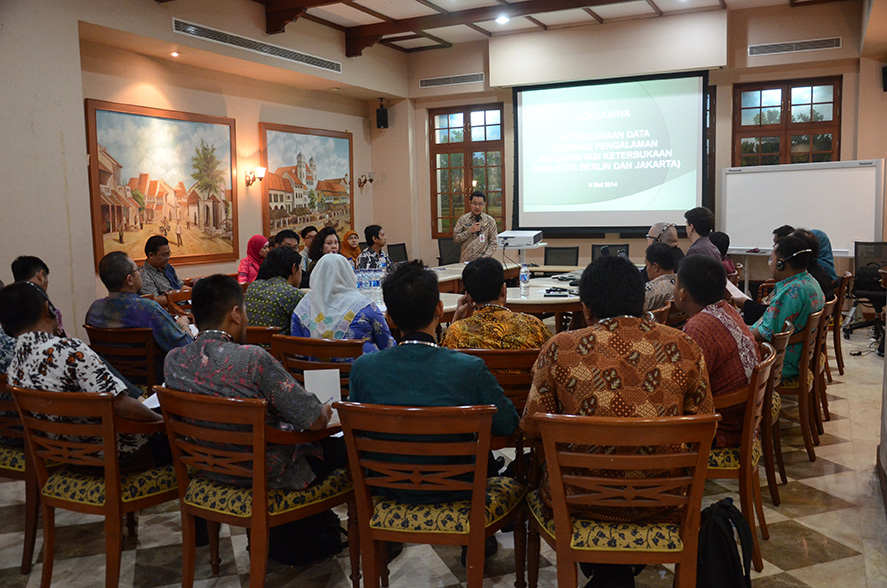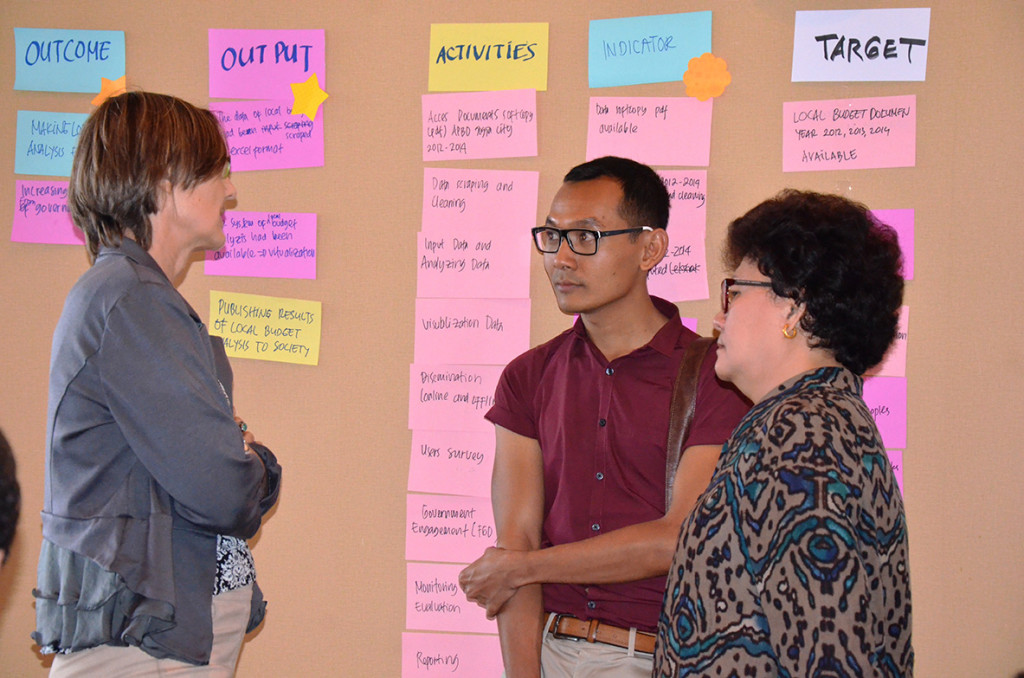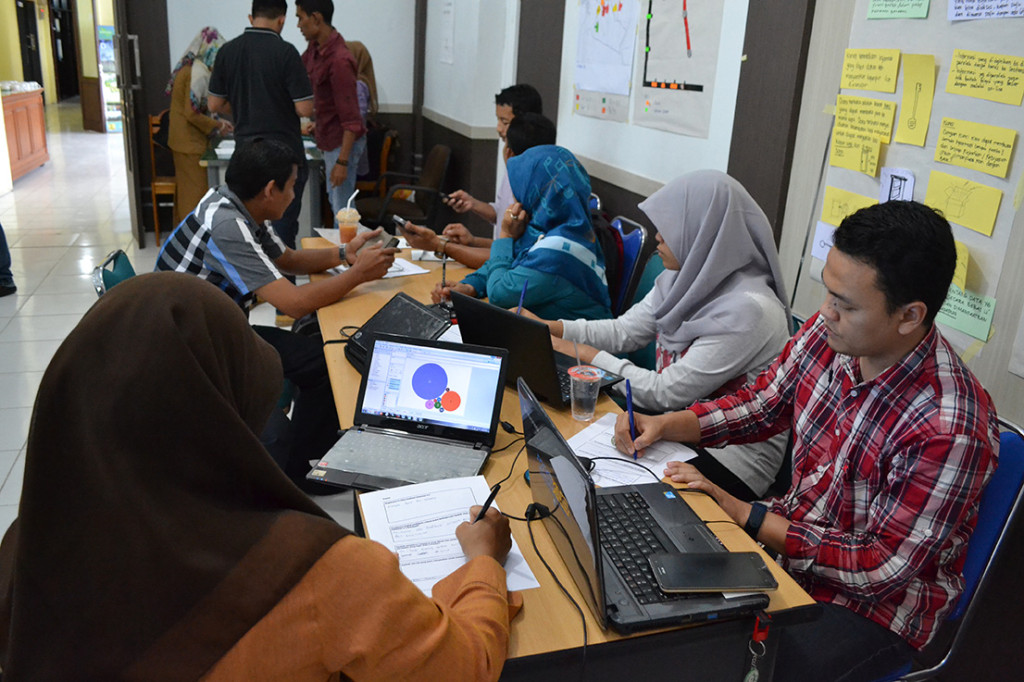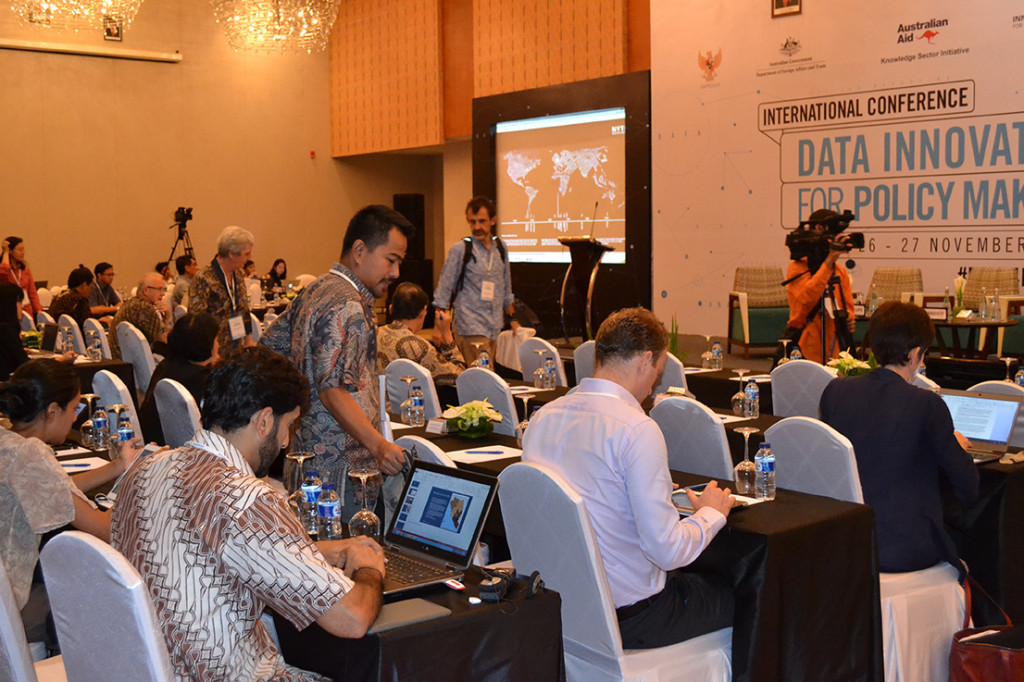Time flies fast: we’ve entered the second month of 2015 and already our Jakarta Lab’s been active with our on-going initiatives. Additionally, we worked together as a well-oiled team to organise and bring about the Regional Open Data Agenda-Setting Workshop 2015 and the official Launch of the Open Data Lab Jakarta, both held over a week ago.
Before delving into the two aforementioned events, a quick recap of what we’ve accomplished in 2014 is in order. Here they are in a nutshell:
We’ve kickstarted several projects, and even finished one of them within 2014.

Jakarta Open Data Initiative
2014 has been a progressive year for open data in Jakarta. From 26 to 27 April, there was the first government-sponsored open data hackathon, #HackJak. The competition had over 130 participants, and the winning applications made use of the annual spending budget and public transportation system data of Jakarta.
In the third quarter of last year, the Lab facilitated the visit of Jakarta government representatives to Berlin to exchange experiences and insights on open data initiatives, of which were used in Jakarta’s open data program. Supporting this and in an effort to make the city’s open data sustainable, the Governor Act No 181/2014 (Pergub DKI No. 181 Tahun 2014 tentang Sistem dan Prosedur Pengelolaan Data dan Informasi Pembangunan) by the Governor of Jakarta, Basuki Tjahaja Purnama (Pak Ahok) was passed. The act regulates how open data works in Jakarta, defining responsible parties for specific processes.
The Jakarta Open Data Technical Guideline, a project coordinated by the Lab, was also made public, alongside significant quantities of datasets from the health, education, civil registry, urban planning, regional disaster management and fire-fighting agencies.

Open Data for Transparency
In September last year, we initiated the project implementation with the selection of four partners working on fiscal transparency in their areas: Perkumpulan IDEA and Pattiro Surakarta from Indonesia, and INCITEGov and E-Net from the Philippines. The project is supported by SEATTI, and uses a mentoring approach for the local and international aspects and strategies.
The kicktstarter workshop was held in September, which allowed the participating organizations to more deeply explore the uses of open data for improving local fiscal transparency. Here and throughout the on-going implementation process, the groups explore and learn about approaches and tools for accessing, analyzing and interpreting data and developing work plans for local pilot interventions. As of November, individual pilot projects are all underway with their finalized action plans.

Opening Data for Better Education
Conducted with support from USAID Kinerja, together with GeRAK Aceh and the Banda Aceh city government, this pilot project ran from November to December 2014.
The project centered on using education datasets, as determined by the needs and demands of the representatives from civil society, media and academia from the first workshop. In the second part, we worked with the education agency of Banda Aceh to help them locate, clean and provide data online. The final workshop – coupled with a public event and exhibit – paved way for us to work with media, activists and the local government on using and disseminating the data through various offline and online visualisation methods.
Altogether, the project approach addressed both the supply and demands sides of open data. It also successfully inspired other government agencies in the city to open their data as well while opening gateways for dialogues between the local government and the citizens.
We’ve been around and about, organising, attending and presenting here and there.
May 2014 is a significant date for us: the Jakarta Lab was soft-launched by Web Foundation’s CEO, Anne Jellema, at the Open Government Partnership (OGP) regional event in Bali.
In this OGP event, we also organised two open data sessions—aside from the announcement and introduction of the Open Data Labs, discussions regarding the Open Data Barometer and Open Data for Developing Countries also took place.
Moving forward, November marked the Data Innovation for Policy Makers Conference. The Lab successfully took advantage of this event to increase awareness of our presence, projects and activities not only to data experts, but to government, big business players, and policy-makers as well.

Moreover, from November to December, several members of the Lab held presentations and trainings internally and with local institutions, such as the facilitation training that helped build the team’s skills. We also went to ESQ Stimik to discuss with their students about Open Data for Business Innovations, and to Binus University to share with them the basics and potential uses of open data.
Then there’s also the Open Data Barometer 2013, where Indonesia ranked 52—and fast-forward to the Open Data Barometer 2014 in which Indonesia jumped 16 places and is now at the 36th place.
Definitely, the year that just went past has been such a momentous learning period for us! From building, setting foundations and getting the Lab running on its feet, we’ve had a plethora of experiences that enables us to become a better fueled and more efficient center for open data in the region.
Keep track of our activities, projects and engagements by following us on Twitter @ODLabJkt, or through our projects and news pages. If you want to partner with us, have ideas you’d like to work with us on, or are generally interested in learning more about the Open Data Lab Jakarta, contact us.
Leave a Reply